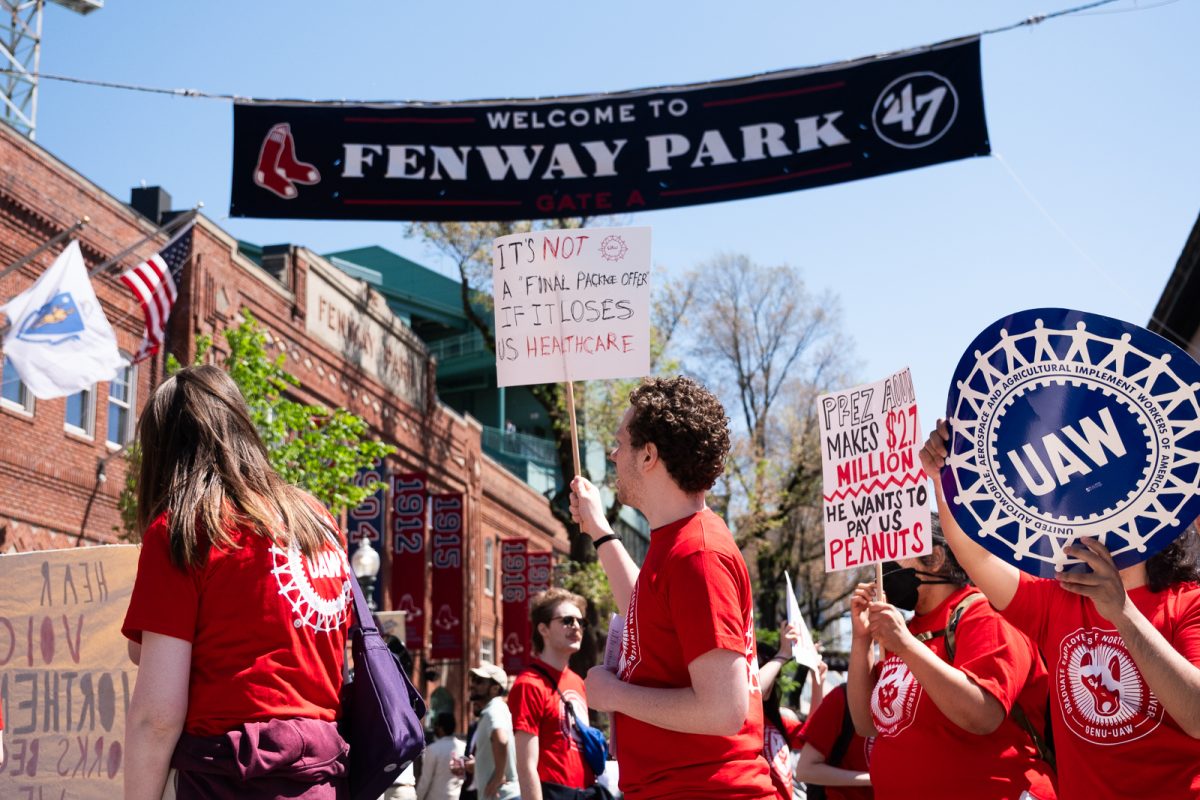With “Don’t be Ludacris” stickers on their shirts and “Roll Out” playing on a boom box, students gathered to protest at President Richard Freeland’s Mardi Gras Breakfast in February about his decision to “postpone” April’s Springfest concert.
In a letter to the university in the wake of the post-Super Bowl riots, President Freeland told students “timing is everything in life,” and that “there will be a time for a concert.”
Five months later, students are ready to take Freeland up on his promise. With a tentative date of Sept. 18, the Council for University Programs (CUP) is preparing to host a large-scale concert in Matthews Arena, which Freeland said he is ready to approve once he sees a specific plan.
“I think it’s time to have a concert,” Freeland said.
Though no act has been confirmed, incoming CUP President Allyson Savin said the group is considering a similar list to that of last spring, including Ludacris.
“If we can get Ludacris back, great,” Savin said. “That goes a long way to not only repair relationships with the entertainment industry, but also it gives credit to President Freeland’s words that it was a postponement and not a cancelation.”
But even with the administration’s approval, former CUP President Tom Kneafsey, who will continue to oversee the concert preparations, will still have his share of hurdles to overcome.
To pay for the concert, CUP must request money from the newly-created “Major Concert Fund.” The funding for last year’s proposed concert came out of the “Major Event Fund,” which sat at $250,000 and served the same purpose as the concert fund will this year. The Major Event Fund will now act as an empty account that groups can request funds be put into to pay for large-scale activities.
Between costs of the act and security, Savin expects the group will use the majority of the $250,000 pot.
But the money allocated to last year’s concert did not roll over into the Major Concert Fund – it remains in the Program Request Fund, where Kneafsey said he feels the money for the fall concert should come from.
Both the concert fund and the program request fund will be made up of money from the Student Activity Fee.
“I’ve not yet been told one good reason why the fall concert cannot come out of the Program Request Fund, which is where all the leftover funds – including the money that was leftover when Springfest was postponed – rolled into,” Kneafsey said. “No one can tell me why.”
Former Budget Review Committee (BRC) Chair Michael Benson, who mandated the money be re-allocated to the Program Request Fund, said the reason for putting that money in the larger pot was a financial one, as the Major Concert Fund is capped at $250,000.
“[CUP has] never successfully carried out a concert that costs over $120,000,” Benson said. “From our point of view, they have to prove to us that they can do it, carry it out. The planning and implementation are two very distinct components to any concert.”
In addition, he said the funding for the fall concert has to come out of the Major Concert Fund, as it specifically fits in that category. And it will be up to the success of the first concert to determine if the second concert will be funded.
In order to fund a second concert, CUP must request that the BRC take the money from the programming pool and put it in the Major Concert Fund once it is emptied by the first concert.
CUP was allocated almost $200,000 for last year’s concert, the largest sum in history, but all of that money remained unused. The 2003 Springfest concert featuring the Mighty Mighty Bosstones cost the group about $30,000, Benson said.








